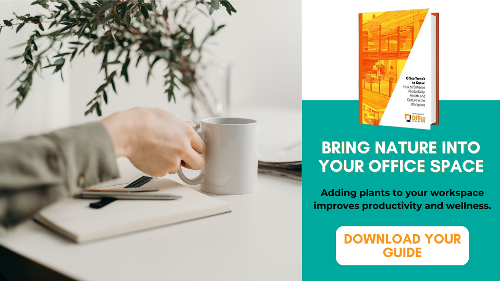Every day, you can count on the sun to rise in the morning and set in the evening. Unfortunately, if you work inside an office with four walls and very few windows, then you likely aren’t a witness to many of the sunlit hours in between.
That lack of natural light may be more than just an excuse for not having a radiant tan. In fact, a lack of natural light could be affecting your entire life, both at work and home.
Should you draw the blinds and shut out the sun or embrace natural light during your workday? The evidence suggests that keeping those blinds open might be the best bet. Let’s look at why.
Sunshine is Good for Your Sleep
It almost seems counterintuitive to suggest that sunlight is good for sleep. After all, we hear that humans need darkness to achieve a good rest. Researchers even recommended turning off cell phones and televisions up to an hour before bedtime to enjoy a great night of sleep.
The truth is that sunlight helps set your body’s biological clock, also known as your circadian rhythm. Exposure to natural light during the day helps your internal clock stay on time so that when bedtime rolls around, your body is ready to catch a good night of rest.
Not only does exposure to sunlight help people fall asleep more quickly, but it also helps ensure that people enjoy a night of rest without disturbance. The result is that people wake up feeling more rested and ready to take on the day.
While there are many explanations for why someone may not be able to sleep, a lack of sunlight may be one a common cause. Having exposure to sunlight throughout the workday can go a long way in determining how well you will sleep at night.
Sunshine is Good for Your Physical Health
If you have been trying to lose a few extra pounds around your waistline, then a simple way to kick-start your weight loss could be spending more time in the sun. While natural light is not some miracle diet pill, it does play a key role in physical health.
Sunlight helps regulate serotonin in the body. This is the hormone that is most strongly associated with mood. When serotonin levels are low, we look to other methods to raise the amount of serotonin in our bodies.
One of the most common ways our body will look to raise serotonin levels is by eating. Food has a strong influence on serotonin production. Of course, hunger cravings don’t always lead to great decisions about what to eat. Often, people end up snacking on sweets or other unhealthy snacks which can lead to weight gain.
There is also some correlation between sunlight exposure and activity. Someone who enjoys more time in the sun is likely participating in some outdoor activity like walking, running, or playing sports.
If your office does not have a lot of natural light, take time to go out for a short walk to enjoy the sun, reset your circadian clock, and get the blood flowing through mild physical exercise.
Sunshine is Good for Your Mental Health
We briefly touched on this topic in the previous section. As mentioned, sunlight helps to regulate the level of serotonin in your body. Serotonin is a natural mood stabilizer, and while natural light alone will not cure depression or anxiety, it may play an essential role in helping you get over a case of the Monday blues or a particularly stressful day at work.
In fact, Seasonal Affective Disorder is a disorder sometimes experienced by people during the winter months when they are exposed to less natural light. This disorder can be felt in different ways by different people, but it usually manifests itself through feelings of lethargy or hopelessness.
Of course, if you are suffering from prolonged periods of sadness or depression, then you should seek out help from a qualified mental health professional. Sunlight is essential, but it cannot cure all.
Sunshine is Good for Your Productivity
It makes logical sense that if access to natural light improves your sleep, your physical health and your mental health that your productivity at work will also increase. Many studies have been done attempting to define precisely this.
While the exact figures can vary depending on the industry, location of the study and type of work being done, the consensus seems to have settled on individual productivity improving by two-to-16 percent when workers are given a desk with natural light.
There are also studies that indicate natural elements such as natural light can improve individual creativity by 15 percent. In a day and age where an organization’s ability to innovate is at an all-time premium, giving your team the tools, they need to think creatively could be considered a competitive advantage.
Let the Light In
Don’t close the blinds in your office and ignore the natural light outside. There are numerous documented health benefits to natural light exposure. By letting natural light into your workspace, you may improve your physical and mental health. Ultimately, happier healthier people perform better at work and have more rewarding lives outside of work.
Looking for some advice on how to maximize access to natural light in your office? Our space planners have helped countless organizations get the most out of their existing space, request your consultation today!
Cory Porteous
Marketing Manager
Office Interiors




